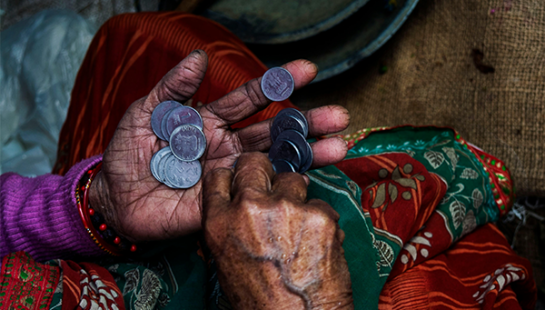Over the last few decades, thanks to modern technology, we’re more aware of the evil in our world than ever. We watched, in real time, as the twin towers crumbled like sandcastles on a beach, sending nearly 3,000 people to an early grave. Any belief that humanity has learnt from past acts of evil—the never again of Auschwitz—was ‘put to bed,’ yet again.
We can’t pretend that the world isn’t an evil place. This is evident today in the daily updates on the Middle East, Russia’s invasion of Ukraine, conflict and famine in Sudan, and others. Evil just won’t go away.
Of course, it’s possible to live in Australia and feel unaffected by the evil playing out in the world. We can ignore what isn’t on our doorstep. And when it comes knocking it takes us completely by surprise.
I bet most Australians never imagined the massacre of Port Arthur, with 35 dead and 23 wounded. More recently, Kiwi’s in their wildest nightmares, never believed one man would shoot and kill 51 people in their place of worship. That kind of thing doesn’t happen in Australia and New Zealand. But it did, and it hit us in the right in the face.
What Does The Bible Say About Evil?
As Christians it’s hard to make sense of evil. If God, the creator of all things, is good, why is there evil in the first place? With such an amazing God, how is evil even a thing?
Unfortunately, if you’re looking for the how and why of evil, you may be disappointed because the Bible doesn’t address either of these questions. What the Bible does do however, is say something about what God has done, is doing and will do about evil.
Evil, in the Bible, is there from the get-go. The deceiving serpent leads to the first sin and expulsion from the Garden. Cain kills Abel and by the time we get to Noah, the hearts of humankind are so evil God is sorry for creating us in the first place (Gen 6:5-6). The flood provided a fresh start, but then Noah’s descendants built the tower of Babel, so here we go again.
God then chose Abraham to start a new kind of family, a people of promise that would keep the way of the Lord by doing righteousness and justice (Genesis 18:19). But again, this people of promise, called to be the solution, were also the people of the problem just like those before them.
Unable to bear children, Sarah gives her Egyptian slave Hagar to Abraham to bear the offspring God promised. Jacob cheats Esau out of his inheritance. Jealous, Joseph’s brothers sell him into slavery and the people of promise become slaves in Egypt for around 400 years. God hears the cry of his people and partners with messed up human-beings to set his people free. Eventually the people of promise enter the promised land.
We could go on with stories in Daniel, Job and others. In all these stories, a common picture of God emerges.
Time and time again, despite Israel’s unfaithfulness, God remains unbelievably faithful to them.
So, What Do We Make Of All This?
The Biblical narrative tells us God doesn’t dish out justice blindly. It’s not so much about rewarding the good and punishing the wicked but rather the kind of justice that reconciles, redeems and restores.
If God’s motivation for justice, in the face of evil, is about restoring creation back to God’s self, it means we, as image bearers and stewards of the earth, have a part to play.
For me, this begins with acknowledging that the evil humanity has done (including my part in it), has contributed to the enslavement of creation. And then, it means partnering with God in the reversal of this enslavement—the restoration of the world—or as we often say, the kingdom of God. What a privilege!

God’s Plan For Restoration
But hasn’t God’s plan through Abraham failed? That’s the crazy thing about God’s love for us, for all of creation. God doesn’t give up but works tirelessly confronting evil, through restorative justice until blessing overcomes curse.
Through the prophet Isaiah, God announces the chosen servant who will ‘bring forth justice to the nations . . . I am the Lord, I have called you in righteousness, I have taken you by the hand and kept you; I have given you as a covenant to the people, a light to the nations, to open the eyes that are blind, to bring out the prisoners from the dungeon, from the prison those who sit in darkness.’ (Isaiah 42:1b, 6-7)
When it comes to Jesus—the suffering servant, the crucified God—we don’t tend to think about evil really. Most, if not all of us (I’m still working on it), think about the cross and evil separately. Maybe, that’s because we think this world is done for, that evil has won the day, and the cross is mainly about personal forgiveness and the promise of a kingdom (heaven) far away from this place.
Jesus did win the day on the cross, the most significant event ever, no doubt about that. The kingdom, however, was a present reality for Jesus. It had come near, has come to you, and is among you (Luke 10:9, 11:20, 17:21). It wasn’t far away at all.
If we’re always looking for another place to go, we’re less likely to partner with God in the restoration of this world. What would be the point?
The cross shows us once and for all that God stops at nothing to put things right. God’s long-term plan for redemption through Jesus and confronting evil was played out around the cross.
The gospels narrate stories of evil building, coming from all directions to conspire against the vulnerable, suffering, Son of Man. The political powers of Caiaphas, the High Priest, Pilate, and Herod, and corrupt religious leaders all conspired against Jesus (John 19:15). The people called for the guilty Barrabas to be set free instead of the innocent Jesus (Matthew 27:20).
The disciples, the ones closest to Jesus, weren’t exempt from evil either. Peter, the rock, is called Satan (Mark 8;33) and denies Jesus, having promised to die for him (Matthew 26:35,72). James and John ask to sit at the right and left of Jesus in glory (Mark 10:37). Thomas doubts and Judas betrays. Courage quickly deserted them and they in-turn deserted Jesus.
The Victory Of The Cross
There were dark forces too. There’s clearly demonic activity on the way to and therefore around the cross (Luke 4:41, 8:29). While ‘The Satan’ is not mentioned as much as you’d think in scripture—and I do wonder whether we give Satan far too much credit—we should be wary of dismissing the work of the evil one as well.
Evil, itself, played its best hand at the cross, and lost as Jesus fulfilled what God had promised to do. In the line of Abraham, Jesus was the Israelite who finally would keep the way of the Lord by doing justice and righteousness (Genesis 18:19). As Messiah, he took on himself the consequences of the sin of Israel and the whole of humanity and, in doing so, fulfilled what the law could not (Romans 8:3,4).
The death and resurrection of Jesus achieves far more than atonement. It is God’s final ‘no’ to evil and the death it brings.
As people of promise, through grace, we’ve been called to live between the cross, the resurrection and the world God will restore back to God’s self. As followers of Jesus, we’re called to imagine and to live for the new restored world.
We’re called to be people of the solution, who roll up our sleeves with our God who has rolled up his. Our focus is not about a ticket to heaven, as wonderful as that is. But we’re to constantly act as God’s agents, reflecting God’s image and healing, through vulnerability and forgiveness towards our world.
Rather than seeing ourselves as a community of the saved, we are the community of the redeemed, in active service of the kingdom as God restores the world.
Reference: ‘Evil and the Justice of God’ N.T. Wright



 Meredith Benson,
Meredith Benson,
